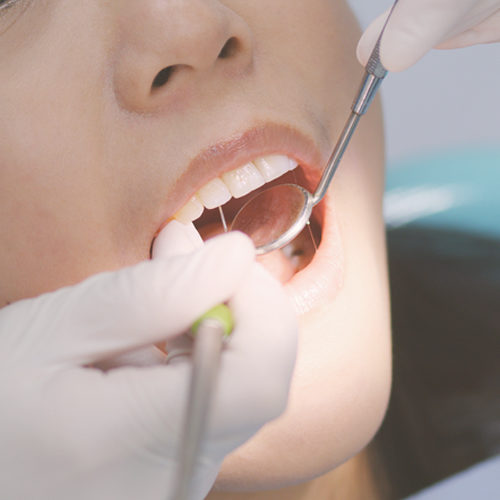Oral care in pregnancy
Yourself

Oral care doesn’t stop during pregnancy. In fact, some oral problems are more likely to occur during pregnancy due to hormonal changes, and if you don’t take care of them, they may affect your baby.
Let’s take a look at some of the common oral problems pregnant moms experience.
Common oral problems in pregnancy
While many oral lesions can happen in pregnancy, these are the common ones you should know:
Gingivitis: This is an inflammation of the gums and manifests as red, swollen, painful, and bleeding gums. It is the most common oral problem in pregnancy and the most common cause is limestone. About 70 percent of pregnant moms experience gingivitis, and research has also shown that up to half of the women with preexisting gingivitis experience significant exacerbation during pregnancy. The reason for this could be the high levels of estrogen and progesterone during pregnancy, coupled with the associated decrease in immune response and changes in oral flora.
Loose teeth: A tooth becomes loose when it is not firmly attached to the supporting jaw bone. While this is often seen in children, it can happen in pregnancy because the high levels of progesterone and estrogen can loosen the ligaments and bone that hold the teeth in place. When this happens, you may find it difficult to chew properly.
Dental cavities: These are small dark or brown areas on the surface of the teeth. They are also called caries or tooth decay, which usually goes undetected in the early stages. There is a high risk of caries in pregnancy due to an increase in the acidity of the mouth and changes in eating habits, which present a conducive environment for cavity-causing bacteria.
Periodontal disease: This is a damaging inflammation of the periodontium — the ligaments, bones, veneer, and dental sockets that hold the teeth in place. It results from untreated gingivitis and can lead to the destruction of the bone that supports the teeth and subsequent teeth loss. Periodontitis has been associated with poor pregnancy outcomes, such as low birth weight and preterm birth.
Dental care while pregnant
As you can see, during pregnancy, there’s an increased risk of many oral problems, including cavity-causing bacteria. Research has shown that moms with a lot of cavity-causing bacteria during pregnancy and after delivery could transmit these bacteria from their mouth to the mouth of their baby, and early contact with these bacteria can predispose your baby to early childhood cavities that may require extensive dental care at a young age.
It is, therefore, very important for you to take good care of your teeth and gums during pregnancy. Ensure good oral hygiene by brushing and flossing your teeth as needed. Brush for 2 minutes, at least morning and evening, and floss after every meal or at least once a day.
Keep your dentist appointments, especially if you notice gum swelling and redness. Gingivitis may require professional cleaning and the use of mouth rinses, like chlorhexidine.
Is it safe to visit your dentist during pregnancy?
Yes, it is safe and necessary to see your dentist during pregnancy. Dentists are trained to assess proper treatment for pregnant clients. The most suitable time for oral treatment is during trimester 2, as some dentists might not want to treat you in the first stage of pregnancy or when closer to your due date unless you can provide a letter from your OB/GYN.
Oral care is not only safe during pregnancy but also very important for your health and that of Your Child.
What you should know before you see the dentist
Ensure your dentist knows that you are pregnant so that, if the condition requires medications, they can prescribe medications that are safe for you and your baby. This would also help the dentist to avoid any investigation, such as routine x-rays, that may be dangerous to the developing baby.
Give your dentist all the information about your health and any medications or supplements you are taking. Your dentist will know what to do and offer a treatment that is safe for you.
Verified:
Nachsamin Patchrawiphakkit , D.D.S. (18 February 2022)



